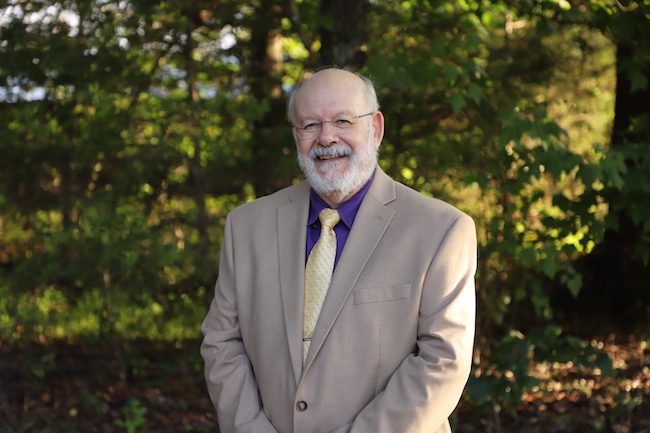Tennessee Tech professor named Fellow of the Royal Society of Chemistry
Pedro Arce, professor of chemical engineering and university distinguished faculty
fellow at Tennessee Tech University, has been named a Fellow of the Royal Society
of Chemistry.
Known as the oldest chemical society in the world, the Royal Society of Chemistry
in the United Kingdom is an organization created from the blending of four other chemistry
societies in 1980, the oldest of which got its start in 1841.
To be named a Fellow, a person must have at least five years of senior responsibility
or evidence of outstanding contribution to chemical sciences. A detailed application
must be filled out and submitted for a committee to review. Arce was officially notified
of his acceptance late last semester.
“When I received the notification that I was named Fellow from the Royal Society of
Chemistry I felt both honored and grateful,” Arce said. “The distinction by one of
the most influential professional societies of chemistry is a great milestone in my
academic and professional career that highlighted my lifetime efforts to advance chemical
engineering sciences in scholarship, education, and administration aspects. At the
same time, I felt very grateful to all my students that have enormously contributed
to this effort and my colleagues who have provided the support and encouragement along
the way.”
Arce came to Tech in 2002 as the chemical engineering department chair and served
in that role until the spring of 2020. During that time, he worked extensively on
the three pillars of the academic profession including research, education and administration
(service). As a result, the department saw enormous growth. Undergraduate enrollment
in chemical engineering grew from only about 65 students to almost 400 at its peak,
and now runs an average of 330 students.
Graduate student enrollment also increased. Female enrollment increased from around
23 percent to an average of 35-38 percent, making it the largest producer of female
engineers within the College of Engineering. The department also has seen a continued
hiring of its graduates by the workforce, and an increasingly supportive and inclusive
faculty, according to Arce.
Arce says he believes that mentoring and advising is not enough for the student’s
success in college; this needs to be complemented by an academic environment that
is supportive and inclusive for the all the students. For example, he spearheaded
efforts to improve the curriculum. A new concentration in biomolecular engineering
was added, as well as an option to a fast-track master’s degree and a non-thesis master’s
degree option. He helped implement a distinction in the major option for chemical
engineering students and regular research seminars.
His colleagues and students have also received a number of awards during his leadership.
They earned a departmental national distinction for gender diversity. Chemical engineering
students have received prestigious recognitions from the university, professional
societies and national organizations including numerous Derryberry awards, American
Institute of Chemical Engineering division awards, and National Science Foundation
and the National Institute of Health postdoctoral fellowships, among others.
“Dr. Pedro Arce is unquestionably one of the recognized leaders in engineering education
because of his creative, innovative and entrepreneurial approaches to education,”
said Francis Otuonye, interim associate dean for research in the College of Engineering.
“Under his leadership, the Chemical Engineering Department at Tennessee Tech University
gained national and international reputation. Dr. Arce is a change agent and he is
a very passionate educator and devoted to student success and long-life learning.”
Arce’s love of education started when he was growing up in his rural community in
Argentina and completed his K-12 education while traveling back and forth from his
parents’ farm on horseback. His draw to engineering came from learning about the Apollo
11 mission to the moon. When studying chemical engineering at the Universidad Nacional
del Litoral in Santa Fe, Argentina, he found a mentor who made a profound impact on
his life, and vowed to make a similar contribution to the lives of his own students.
His main goal has been the development of professional engineers who are holistic,
innovative, socially impactful and with an entrepreneurial mindset. During his time
at Tech, he has mentored or co-mentored students in nearly 200 research and educational
projects. A large portion of these have been with students in underrepresented populations.
Many of his mentees are in leading positions in industry, national labs, and academia
in USA, Latin America, India and South Korea.
Arce has also authored or co-authored, with students and other collaborators, more
than 150 publications, delivered more than 350 presentations, and more than 70 keynote
or plenary lectures in the United States, South America and Europe.
“It has been a great pleasure and honor to work alongside Dr. Arce for almost two
decades,” said J.J. Biernacki, professor of chemical engineering at Tech. “He has
been a visionary leader for our department. I have never worked with anyone with a
greater or more sincere commitment to team-based distributed management.
“By revitalizing the chemical engineering curriculum and making research a departmental
priority and continuum from freshmen to postdoctoral levels he helped to bring opportunities
for both students and faculty, always focusing on academic excellence: Arce taught
us all what it means to be a faculty and the importance of our work; he led the department
with great humility as a servant and enabler.”


